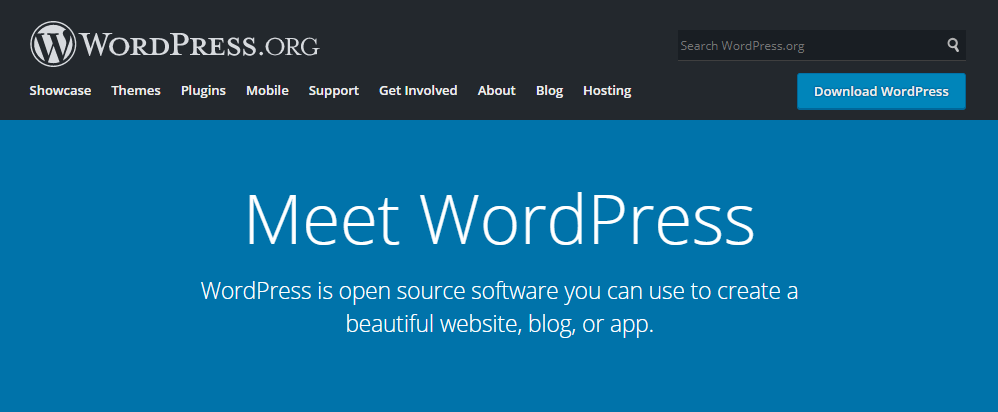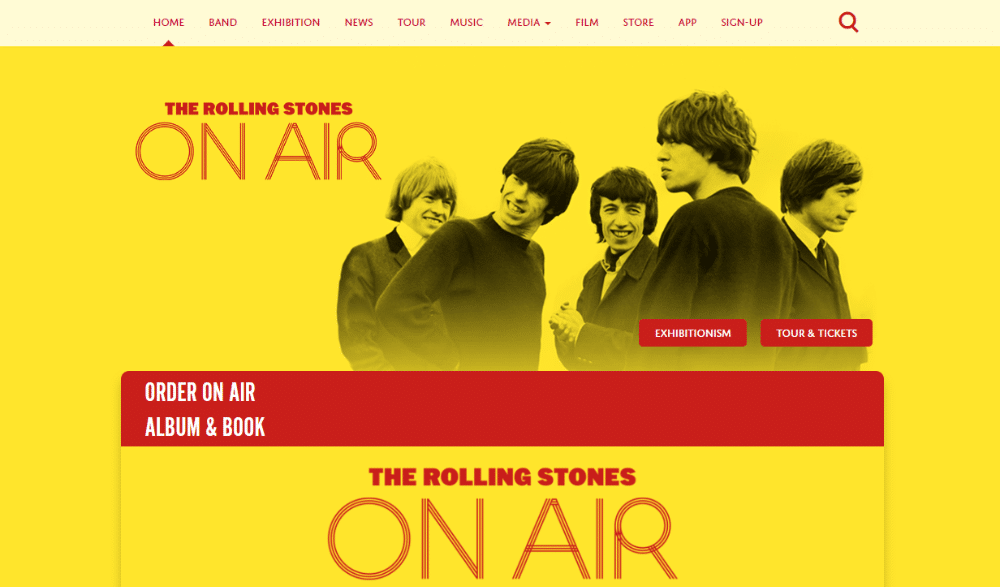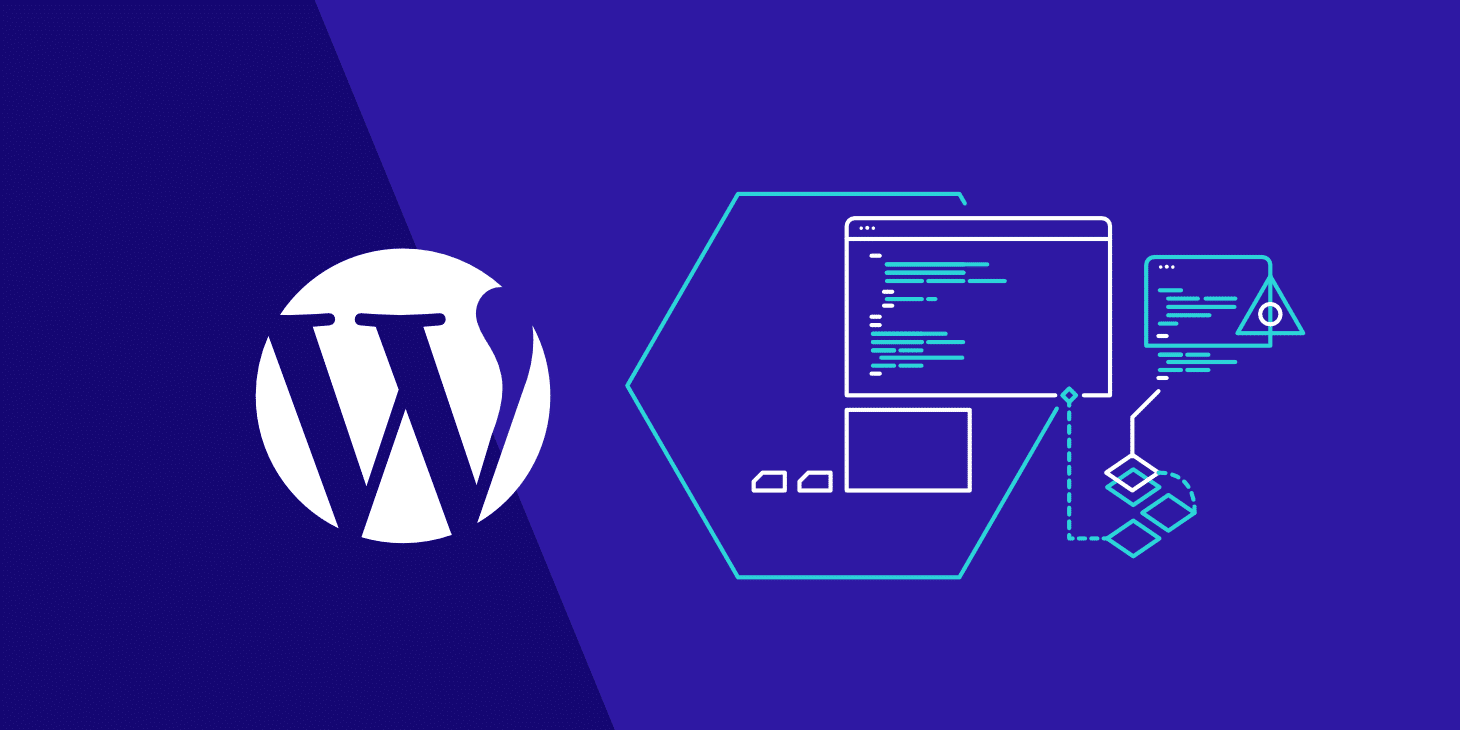At its core, WordPress is the simplest, most popular way to create your own website or blog. In fact, WordPress powers over 43.6% of all the websites on the Internet. Yes – more than one in four websites that you visit are likely powered by WordPress.
On a slightly more technical level, WordPress is an open-source content management system licensed under GPLv2, which means that anyone can use or modify the WordPress software for free.
A content management system is basically a tool that makes it easy to manage important aspects of your website – like content – without needing to know anything about programming.
The end result is that WordPress makes building a website accessible to anyone – even people who aren’t developers.
What kind of websites can WordPress make?
Many years ago, WordPress was primarily a tool to create a blog, rather than more traditional websites. That hasn’t been true for a long time, though. Nowadays, thanks to changes to the core code, as well as WordPress’ massive ecosystem of plugins and themes, you can create any type of website with WordPress.
For example, not only does WordPress power a huge number of business sites and blogs, it’s also the most popular way to create an eCommerce store as well! With WordPress, you can create:
- Business websites
- eCommerce stores
- Blogs
- Portfolios
- Resumes
- Forums
- Social networks
- Membership sites
- …pretty much anything else you can dream up.
Here’s how to install a WordPress theme.
WordPress.org vs WordPress.com

We’ve covered the difference between WordPress.org and WordPress.com in a lot more detail, but here’s the short version:
- WordPress.org, often called self-hosted WordPress, is the free, open-source WordPress software that you can install on your own web host to create a website that’s 100% your own.
- WordPress.com is a for-profit, paid service that is powered by the WordPress.org software. It’s simple to use, but you lose much of the flexibility of the self-hosted WordPress.
Most of the time, when people say “WordPress”, they mean the self-hosted WordPress available at WordPress.org. If you want to truly own your website, self-hosted WordPress.org is almost always the best option.
All you need to do to get started with self-hosted WordPress is a WordPress hosting service and a domain name.
Who made WordPress and how long has it been around?
WordPress was created as a standalone project all the way back in 2003, originating as an offshoot of a previous project called b2/cafelog.
WordPress is open-source software, so nowadays it’s made by a huge community of contributors. But if we were to trace WordPress’ origins back to its roots, its original creation was a collaboration between Matt Mullenweg and Mike Little.
Since then, Matt Mullenweg has largely become the face of WordPress. And he’s also the founder of Automattic, which is the company behind the for-profit WordPress.com service.
The history of WordPress between its founding as a blog platform back in 2003 and today is a long one…
But suffice it to say, WordPress has pushed forward and, thanks to its contributors and huge community, developed into the most popular solution to create any type of website.
Who uses WordPress?
WordPress is used by individuals, big businesses, and everyone in between! On an immediate note, we use WordPress! So the very site that you’re looking at right now is powered by WordPress.
Lots of other well-known entities use WordPress as well. Here are some of our favorite examples:
1. Whitehouse.gov
The official Whitehouse.gov website is powered by WordPress:

2. Microsoft
Microsoft uses WordPress to power its official blog. It also uses WordPress to power blogs for specific products like Windows and Skype:

3. The Rolling Stones
Even famous bands love WordPress! The Rolling Stones’ website is powered entirely by WordPress:

Why should you use WordPress?
Ok, so over 43.6% of all the websites on the Internet are using WordPress, including well-known entities like the White House and Microsoft.
But what about you? Why should you use WordPress?
Well, no matter what type of website you want to create, there are plenty of reasons to use WordPress. Here are some of the biggest:
1. WordPress is free and open source
One of the biggest benefits of WordPress is that it’s free, open-source software. While you will need to pay a little bit for hosting, you will never have to pay just to use the WordPress software, which isn’t the case with alternatives like Squarespace.
Beyond that, you can also find lots of open-source plugins and themes to change how your website looks and functions. Speaking of….
2. WordPress is extensible
Even if you aren’t a developer, you can easily modify your website thanks to WordPress’ huge ecosystem of themes and plugins:
- Themes – these primarily change how your website looks.
- Plugins – these primarily change how your website functions. Plugins can be something small, like a contact form, or huge, like creating an eCommerce store.
Currently, there are over 50,000 free WordPress plugins and 5,000 free WordPress themes, as well as tons of premium options. That to say – you have plenty of choices!
3. WordPress is easy to install
Think you need to be a tech genius to create your own website? Think again! If you can click a few buttons, you can install WordPress on your site.
Nowadays, most web hosts either:
- Offer to preinstall WordPress for you so that your site is ready to go right away.
- Give you dedicated tools that make the install process very beginner-friendly.
As shown below, Kinsta customers create a new WordPress site in the MyKinsta dashboard by selecting WordPress Sites in the sidebar menu and then clicking Add Site in the upper right corner. A drop-down menu will allow you to choose the creation of a new site or begin the migration to Kinsta of an existing site.

You can also install WordPress on your personal computer.
There are several good reasons why you might want to install WordPress on a local computer. For example, if you are building a new site from scratch, installing a new theme or plugin or you just want a safe space to experiment with your existing website, without fear of breaking it.
In this case, we recommend a free tool called DevKinsta that allows you to install WordPress on your Mac or PC.
4. WordPress is flexible
We’ve touched on this already, but WordPress is great because it lets you create pretty much any type of website. Better yet, your website can also evolve with you.
Want to add a forum to your existing WordPress site? No problem – just install the bbPress plugin! Want to add a social network? No worries! Just use the BuddyPress plugin.
You’re never locked into a specific set of functions – you can always adapt and evolve.
We’ve taken our knowledge of effective website management at scale, and turned it into an ebook and video course. Click to download The Guide to Managing 60+ WordPress Sites!
5. It’s easy to find help
Because WordPress is so popular, it’s easy to find help if you ever run into any issues. There are heaps of…
- Blogs
- Tutorials
- Forums
- Facebook Groups
- Developers
…that you can turn to for free and paid help if needed.
Need more convincing?
Still not convinced that WordPress is the best way to build a website? Read this post for a deeper look at ten of the best reasons to use WordPress.
So what is WordPress? It’s the best way to build a website
WordPress is the most popular way to build a website for a reason. If you want to build any type of website, from a blog to an eCommerce store, WordPress is a great option.
Just remember that self-hosted WordPress.org and WordPress.com are not the same thing. And, in most situations, self-hosted WordPress.org is what you want to build a website. Self-hosted WordPress.org gives you more ownership as well as access to all the perks and benefits of the WordPress community.
So how will you use WordPress? We can’t wait to find out!



